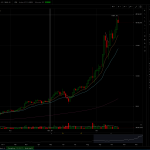Haitham Abdou, director of marketing and product strategy for the ITS group, the biggest supplier of Islamic banking solutions in the world, confessed he was shocked to read Pope Benedict praising Islam’s bankers in the pages of the official Vatican newspaper. However, Abdou said, the article convinced him that Islamic banking is now ready for a rebranding as ethical banking, a system that could find new customers in the western world and elsewhere, as well as its traditional home in the Islamic world.
“Pope Benedict urged the western community to look at the Islamic banking model because of its ethical principles, to restore confidence amongst their clients at a time of global economic crisis,” Mr Abdou says. “It was really quite shocking to me to read such a thing coming from the Pope, but that’s what led me to believe that Islamic banking is crossing the religious boundaries and being seen as an ethical business model.”
The new focus on Islamic banking in the west comes just as ITS prepares for a global roll-out of its latest suite of banking solutions, called, but no coincidence, Ethix.
The name is not just a reminder of the ethical basis of Islamic banking principles, with their refusal to allow ‘usury,’ the charging of interest, but a hint, although Mr Abdou is too polite to say so, that western banking has not necessarily been that ethical recently.
Top tier
ITS was established back in 1981, in Kuwait, where it was (and still is, mainly) owned house. “So because of their needs, our main focus from the beginning was supplying solutions for Islamic banking,” Mr Abdou says. He joined the company 13 years ago, and swiftly rose up from being a programmer, analyst, designer, project manager and product strategist. Three years ago he moved into the commercial side and is now director.
“We supply more than 85 banks in our part of the world. In the past couple of years we’ve started to grow into Africa, and into the Far East from Malaysia to the Philippines. Our core expertise is in Islamic banking, but we also supply into the conventional banking industry as well. We have a lot of the tier one banks as customers; we supply conventional banks in Africa, in Nigeria and South Africa,” Mr Abdou says.
“Conventional Western banks are looking to open up Islamic ‘windows’, especially with the global banking crisis. Islamic banking saw a boom starting a couple of years ago and we feel it’s been growing at about 15 to 20 percent here and globally and we don’t see that slowing down.”
Islamic banking started in the Middle East “probably because of the religious side of things,” Mr Abdou says, and then as western countries started to see the business model of Islamic banking they started to realise the attraction of sharing the risk with the consumer, so banks get more involved. The sector is now in a transitional period where the boundaries of religion are dropping; Islamic finance is now perceived as an alternative financial model rather than just targeting the Muslim community specifically.
“We’ve seen some of the tier one banks such as HSBC, Citibank, Citibank, abn amro, all established Islamic windows in their operations. We’ve seen in London, for example, official regulations covering Islamic banks have been brought in by the financial services agency in the past few years and there are five or six opened there now,” Mr Abdou says.
“France has issued licenses for the establishment of Islamic financial organisations. In my discussions with US regulators, the Islamic front end side of things, that’s where we’ve developed our own products. We are looking into the legality and regulations of the Islamic model, and I have started to see many conferences being held in north America. There’s a global trend in the industry.”












Leave A Comment